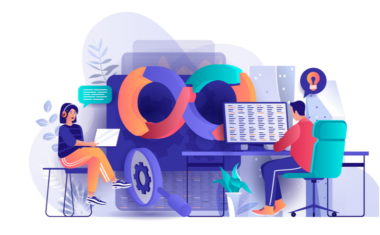Is Coding Hard to Learn? [Guide to Getting Started in 2023]
![Is Coding Hard to Learn [Guide to Getting Started in 2022]](https://www.springboard.com/blog/wp-content/uploads/2022/01/is-coding-hard-to-learn-guide-to-getting-started-in-2022-scaled-1.jpeg)
In this article
Due to the widespread influence of technology in today’s world, communicating with computers has become more paramount than ever. Coding is how we “speak” to computers and other machines, telling them to perform specific actions that might be too tedious or repetitive to do manually.
Coding is also used to program everything from apps to websites. While coding has many applications, the idea of coding may seem overwhelming to some people, especially considering the complexity of programming languages. But it’s not impossible to learn. With the right resources, you can easily learn what you need to know to code.
Is coding hard? If yes, how hard is it? Does someone with no background in programming have a chance bagging a coding job? In this guide, you’ll find answers to all of these questions, along with some tips on getting better at coding.
What Is Coding?
Coding refers to the process of writing programs for computers and other machines. Codes are just sequences of commands that tell the device, system, or software what to do.
Today, coding is used for developing software, websites, mobile apps, and even hardware. There are hundreds of programming languages that you can learn, but the most common ones are C++, Java, Python, and Ruby.
According to the TIOBE index, the most commonly used coding language in 2021 was C, followed by Java and Python.
What Makes Coding Hard To Learn?

Some programming languages are complex-looking enough to discourage anyone from learning to code. But you shouldn’t let this discourage you because once you master the basics, everything else is possible from there.
Here are some reasons some people consider coding to be challenging.
- Lack of exposure: Because coding is an exclusive field, its concepts are not as widely known as some other disciplines. And this is especially true for those working outside the tech world. However, there are so many resources online today that you can use to learn about pretty much any coding related concept on the internet.
- Steep learning curve: Coding takes time and practice to master. For instance, there are about 700 programming languages. While that may seem like a lot, you can pick the languages you want to master and work on them with a targeted approach.
- Lack of community: One of the best ways to learn is by interacting with other people learning to code. Most of the time, people who want to learn coding are left on their own to figure things out. But luckily, things are changing as online forums, Reddit, and Facebook groups are becoming increasingly common. You won’t have any problems finding a community of fellow coders online.
How Long Does It Take To Learn Coding?
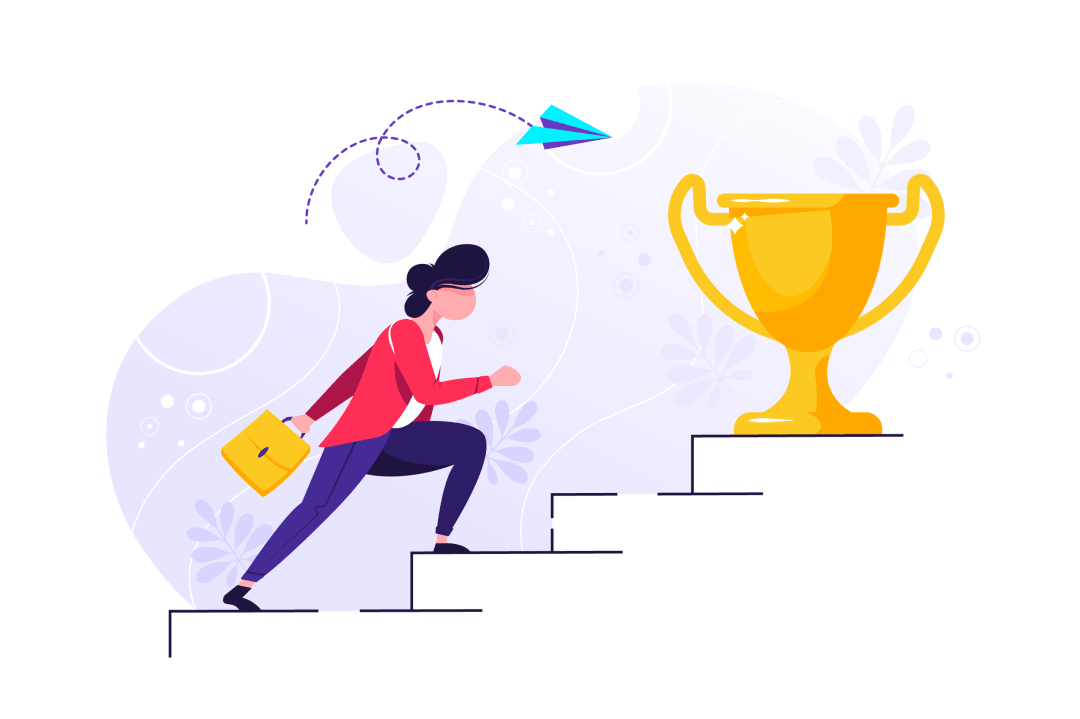
People with an existing educational background in coding can self-study for a few months or take a three to six month course to polish their coding skills for real-world problems. If you’re willing to find the time and are dedicated to learning to code, it shouldn’t take you long to do it.
Some people opt for a bachelor’s degree in coding, which usually takes around four years. Afterward, should you choose to, you could pursue a master’s degree in your preferred specialty.
People who don’t want to take the college route can opt for a bootcamp or online courses. This is a great way to pursue a career in coding, as you can learn a lot from your tutors and mentors while working through a virtual curriculum. You can also experience a sense of community with your fellow students, and can even reach out to them for help when you need it.
How To Get Started With Coding?

With a systematic approach to learning coding, the process shouldn’t be as daunting as it might first seem.
Below are some steps that will ensure you’re successful at learning programming.
Get To Know Other Software Engineering Students
Pritisha Kumar
Software Engineer at Dialpad
Matthew Dillon
Front End Developer at LaunchBadge
Kristy Chu
Software Engineer at FloQast
Build Your Foundation
Before you set out to learn an advanced programming language, like Malbolge or Whitespace, it’s essential to build a solid programming foundation with an easier language like Java or Python. Start learning about basic programming concepts like control flow, arrays, strings, operators, variables, and functions.
Additionally, develop algorithmic or computational thinking, as it is the crux of coding. Computational thinking means taking a task or solution and breaking it down into smaller, more manageable parts.
Check the resumes of programmers and the job your wish to apply for and notice the skills you need to build to be ready for the industry.
For instance, you’ll need to learn about object-oriented programming (OOP) since all major languages are derived from OOP to some extent. Moreover, familiarize yourself with four types of coding:
- Source coding
- Channel coding
- Cryptographic coding
- Line coding
You should know the use cases and benefits of each coding type. Plus, learn about the three types of codes—written, symbolic, and technical—along with how each of them can be applied to different situations.
While mastering the basics, work on some coding projects to further your learning experience. The crucial aspect is to start with something simple and expose yourself to real-world problems that computer scientists solve every day so that you can escalate your learning experience
Once you have a basic understanding of coding concepts, it’s time to learn your first programming language.
Fortunately, there are plenty of resources available for learning coding, including textbooks, practice problems, videos, interactive lessons, online courses, and bootcamps.
Utilize Free Resources

Luckily, we live in a world where free coding resources are readily available for anyone to use.
Google is the most popular search engine in the world, and it can also be your best friend when learning to code. It has many resources that you can utilize during your learning journey.
For example, check out Google Code University to access more than 100 online courses about programming languages and concepts, including Python and CSS.
The beginner-friendliness of these resources makes it easier for you to get on board with low-level programming during the early days of learning PHP, Java, Javascript, HTML, syntax, and other concepts or languages.
For instance, the Applied CS Skills course from Google is a free program that teaches you how to build Android games. Google’s Tech Dev Guide also has an assortment of free short videos and tutorials explaining the basic concepts of programming and coding.
You can also find free learning resources on coding forums and Facebook pages. Plus, there are many YouTube tutorials and online courses that you can sign up for, all at no cost.
You can also learn a great deal from the GitHub repository since it’s a treasure trove of coding knowledge.
Take a Course

The best way to move your coding career forward is to take an online course. A coding bootcamp will help you become proficient in web design, software development, product management, and other hot areas in the industry.
Depending on the course you’re taking, you’ll also build a unique portfolio. Some courses have professional-grade portfolio projects that you need to finish during the course itself. You’ll also get feedback from your instructors on your projects.
Online courses are great because they’re interactive and engaging. It’s much better than learning via reading since you get to write code while learning simultaneously. You can also ask questions or discuss ideas with other students in the program.
Look for programs that are most relevant to your needs and budget. Compare each course’s subject matter, duration, student reviews, cost, and instructor credentials.
Learn an Easier Language First
Instead of jumping right into the complex part of coding, start with an easier language. Here are some good options.
- Python is a beginner-friendly and versatile language that is used in many applications and industries. Renowned companies like Yahoo!, Google, and Wikipedia all use Python. Its easy-to-read syntax makes the language simple for beginners.
- HTML, CSS, and JavaScript are the basic building blocks of the web. If you learn how to use them effectively, you’ll be able to create beautiful and responsive websites.
- PHP is another straightforward language for beginners. The best part about PHP is its robustness. Even if there are errors in the code, the command still runs. Facebook used PHP during its early days. Today, WordPress is among the popular PHP users.
Ask for Help

Some problems have a simple answer, but it may be difficult to see the solution unless you look at the problem from a different perspective. This is where asking for help comes in handy.
There are plenty of ways to get help when learning to code. You can ask your instructor, colleagues, friends, or online forums. Or just post a question on Quora or Stack Overflow.
The important thing is not being afraid to ask for help when you need it. You’ll get better at coding by seeking assistance from others and learning how to work around problems on your own.
How To Get Better at Coding?
You can’t learn to code overnight. Rather, it’s a gradual process that takes time and practice. The more you code, the better you’ll get at it.
Follow the tips given below to become an expert computer programmer.
Get a Mentor
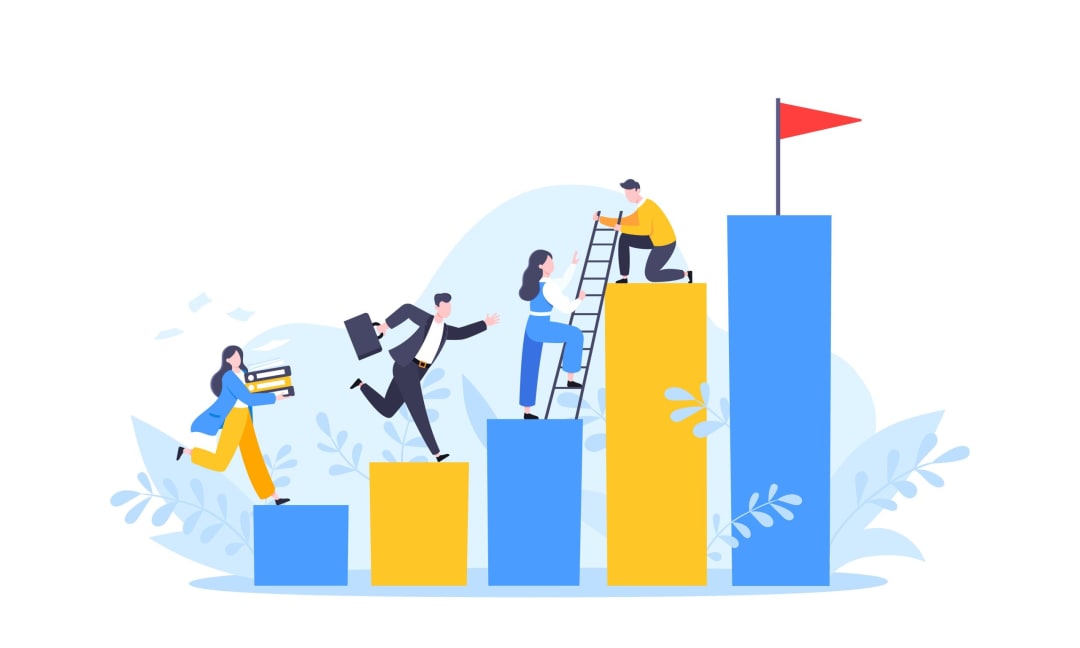
A mentor can give you feedback on your work and provide support to prepare you for the industry, which is why finding a mentor can be a great way to advance your learning journey. A mentor is like a guide that walks you through coding and helps you avoid common mistakes. A good mentor can also help you come up with ideas on how to better solve problems.
Since programming mentors are experienced and already working in the field, they can educate you about the requirements for getting jobs and assist you in developing specific soft skills.
Build a Portfolio
While you’re learning to code, it’s imperative to also build a portfolio. The three main parts of a programming portfolio are:
- About me. In this section, you should write about your programming experience, personal interests, basic background info, and work history.
- Projects. Here, you can showcase projects that demonstrate your coding skills. They must be relevant to the job role you’re applying for.
- Contact information. Your contact info should include your email ID, phone number, and social media profiles (LinkedIn, GitHub, etc.).
It’s always a good idea to keep your portfolio updated. As you learn new coding languages and techniques, add those projects to your online profile. This will make you stand out from the other job applicants.
Pick a Specialty

Are you interested in developing websites, or do you prefer working with software? Whatever your interests are, you can pick a specialty based on them. Keep in mind that you’ll have to learn high-level languages for certain specialties.
Some good options are:
- App development
- Computer hardware programming
- Software coding
- Website design
- Computer and network security
Work on a Side Project
Besides doing the exercises and practice projects in your online course, it also helps to work on a side project to improve your coding skills. A side project can be anything from a simple program to a complex application.
The important thing is that you use the language(s) you’re learning in the project. This will help you better understand how they work and how to use them effectively.
Focus on Your Soft Skills
Along with learning programming languages, you should also work on developing your soft skills, including:
- Time management skills
- Problem-solving skills
- Creativity
- Teamwork skills
- Communication skills
If you can hone these skills, you’ll be able to work better with others and collaborate on projects easily. This will be beneficial to your career growth.
About Coding as a Career
Coding is an attractive career opportunity, considering it pays well and demand is constantly growing. Furthermore, the diversity in coding jobs lets you narrow down your learning journey to the niche you want to work in, such as mobile development, artificial intelligence, game development, etc.
What Are the Requirements To Get Into Coding?
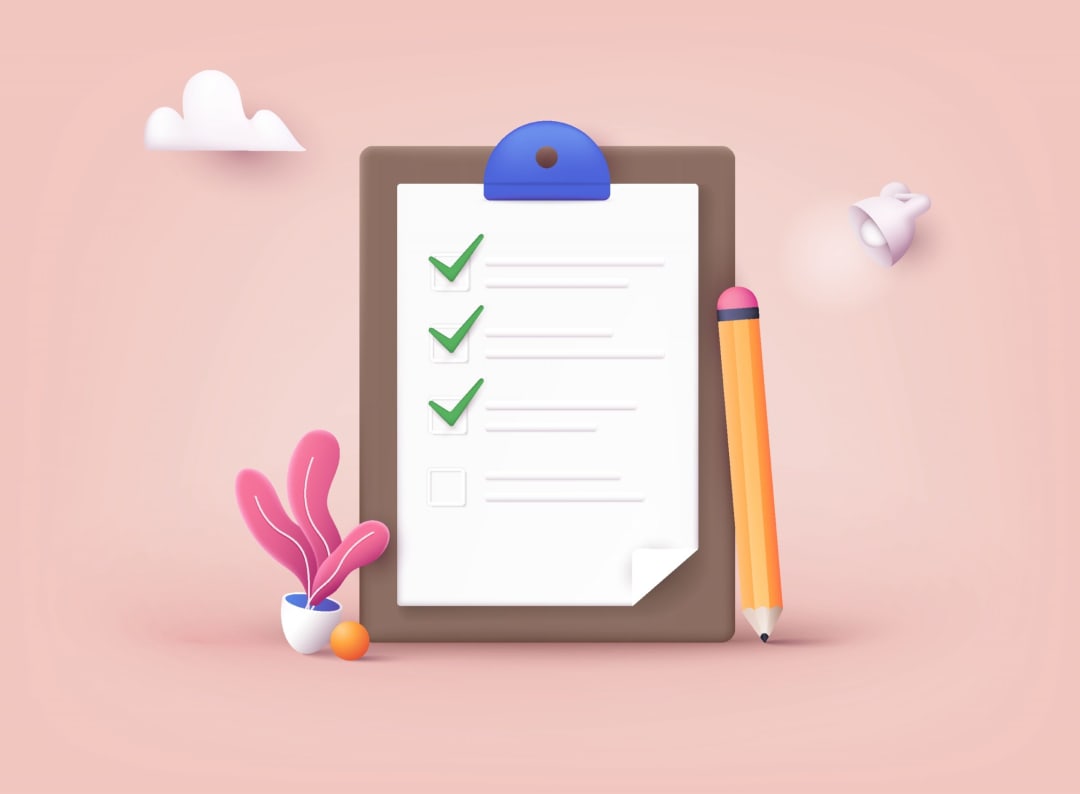
The basic requirements to get a coding job are:
- A degree in computer science or a related field
- Proficiency in at least one programming language
- Good communication and problem-solving skills
The industry is expecting more people with coding skills in the years to come. If you’re interested in a career in coding, now is the time to start learning.
Is Coding a Good Career?
Coding is undoubtedly a promising career, as it’s relatively stable and offers good pay. It’s also one of the key skills to becoming a software engineer. According to the Bureau of Labor Statistics, 9,700 job openings for computer programmers are projected per year.
A career in coding can lead you to many opportunities, including:
- Mobile applications developer
- Web developer
- Computer systems analyst
- Database administrator
- Data scientist
Does Coding Pay Well?
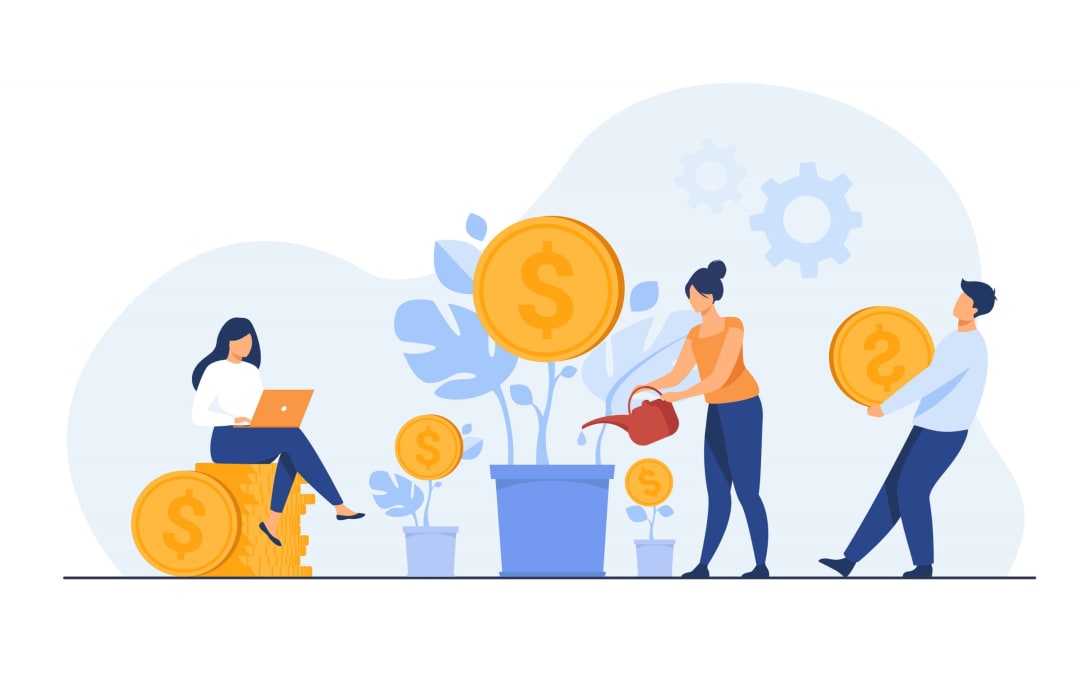
According to Glassdoor, coders in the U.S. earn an average salary of $43,138 per year. Meanwhile, the average base pay of a coding specialist is $44,999. Professionals with more experience and skills working at higher positions can earn up to $65,000 a year.
Is coding hard? Not with the plethora of online resources and learning tips available, many of which we’ve shared in this blog.
Pretty much everything you see online requires coding, including the layout, text formatting, and embedded multimedia. If you want to make a website, you need to learn how to code. Coding is also necessary for developing software, mobile apps, and video games.
So, it’s understandable why so many jobs are opening up in the field of coding. Initially, learning programming languages may seem overwhelming. But with the resources available on the web, especially the ones mentioned in this guide, and dedication to learning, it’s easier than ever to get started.
Since you’re here…
Considering a career in software engineering? We’ll help you build a CV that rivals experienced software engineers in 9 months flat with our Software Engineering Bootcamp. If you’re still mulling, try our free software engineering learning path and check out our salary guide to see what you could be making.




![Free Online Coding Classes [2022 Beginner Guide]](https://www.springboard.com/blog/wp-content/uploads/2021/12/Free-Online-Coding-Classes-2022-Beginner-Guide-380x235.jpg)
